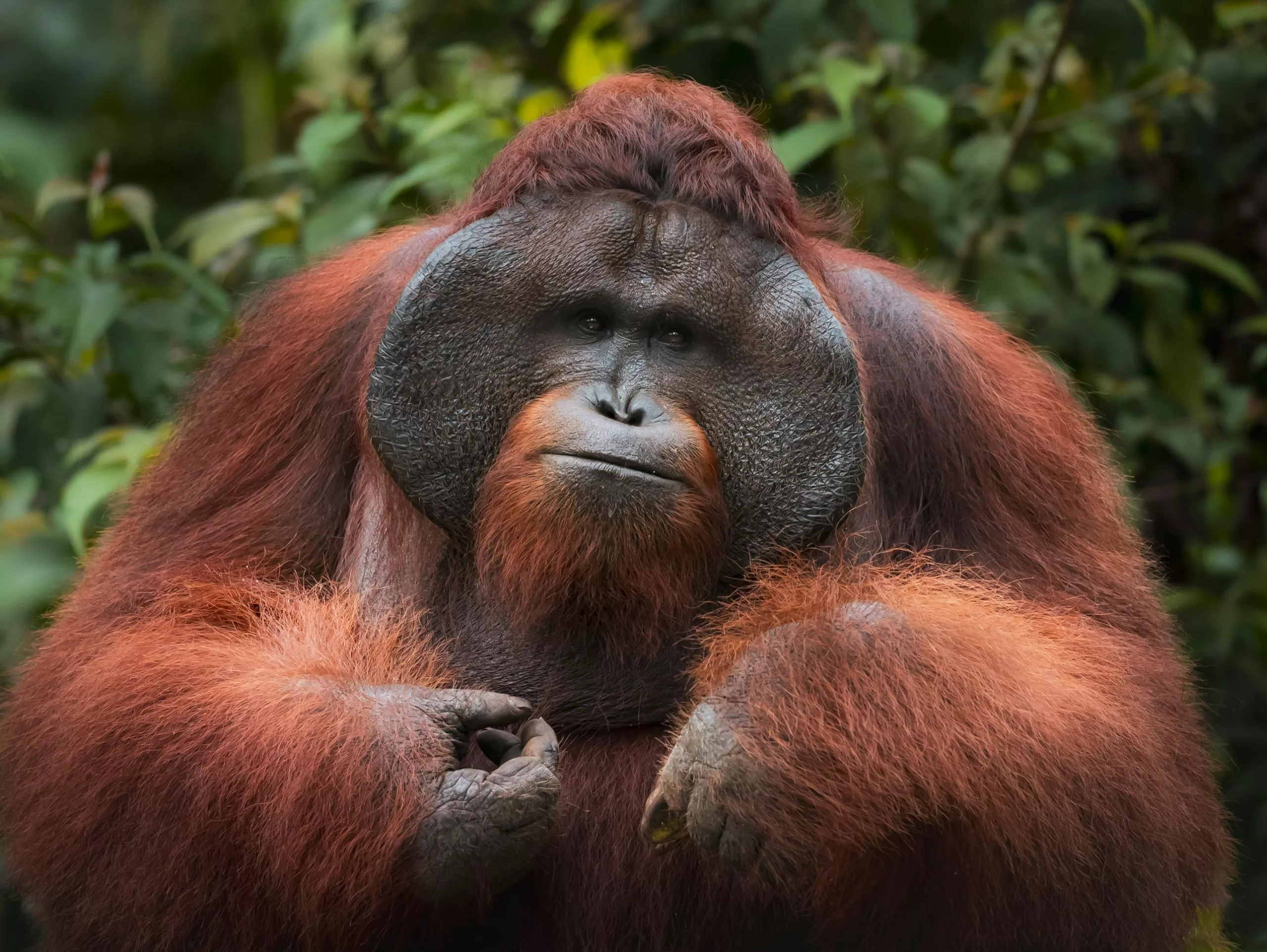Intelligence in the animal kingdom comes in many forms, from the ability to solve complex problems to the use of tools and communication systems. While humans lead the intelligence spectrum, animals consistently demonstrate unique and remarkable cognitive abilities that help them adapt to their environments, cooperate socially, and solve challenges. Here, we delve into the 15 smartest animals in the world, exploring their exceptional traits and what makes them stand out.
1. Chimpanzees

Chimpanzees are often referred to as the smartest non-human animals, and for good reason. Sharing about 98% of their DNA with humans, they exhibit many behaviors that closely mirror our own. Chimpanzees are skilled tool users, employing sticks to extract termites or leaves as sponges to drink water. They also display problem-solving skills and an understanding of cause and effect, as seen in their ability to crack nuts using rocks. Beyond tools, their social intelligence is extraordinary, with strong group bonds, intricate hierarchies, and the ability to work collaboratively.
One of the most striking aspects of chimpanzee intelligence is their communication. They use a range of vocalizations, facial expressions, and gestures to convey complex emotions and messages. Some chimps have even been taught sign language, demonstrating their capacity for learning symbolic systems and abstract concepts. Self-awareness is another hallmark of their intelligence; chimpanzees recognize themselves in mirrors, a rare trait among animals. This level of cognition reflects advanced thought processes that parallel some human behaviors.
Chimpanzees also demonstrate memory capabilities that rival humans in certain contexts. Studies have shown that they can remember sequences of numbers with incredible accuracy and speed, far surpassing most humans tested under the same conditions. These abilities, combined with their emotional depth—displayed in behaviors like mourning their dead—make chimpanzees one of the most intelligent species on Earth.
2. Dolphins

Dolphins are celebrated for their intelligence, which is considered the highest among marine animals. Bottlenose dolphins, in particular, have large, complex brains with an abundance of neurons that support advanced cognitive abilities. Their problem-solving skills are legendary; for example, they have been observed using marine sponges to protect their snouts while foraging on the ocean floor. Dolphins are also masters of communication, using a combination of clicks, whistles, and body movements to interact with each other in sophisticated ways. They can even recognize themselves in mirrors, an indicator of self-awareness and advanced cognition.
Social behavior is another area where dolphins shine. They live in pods with strong bonds and intricate social structures, cooperating in activities like hunting and protecting vulnerable pod members. Dolphins have also been known to teach younger generations survival skills, such as using tools and understanding their environment. This passing of knowledge demonstrates a level of cultural transmission that is rare in the animal kingdom. Furthermore, dolphins are capable of recognizing individual names or calls, indicating an advanced understanding of identity and relationships.
Dolphins have also been known to interact positively with humans, often helping stranded swimmers or forming playful relationships with boaters. Their capacity for empathy and problem-solving sets them apart from other marine creatures. Additionally, their playful nature is not simply for amusement; it often reflects a deep understanding of their surroundings and an ability to manipulate objects in a purposeful manner. Together, these traits cement dolphins’ reputation as some of the smartest animals in the world.
3. Elephants

Elephants are renowned for their incredible memory, problem-solving abilities, and emotional intelligence. Their large brains support advanced cognitive functions, including self-awareness, demonstrated by their ability to recognize themselves in mirrors. Elephants are also known for their empathy and strong social bonds. When a member of their herd dies, they often display mourning behaviors, such as standing vigil over the body or gently touching the bones. These acts suggest a deep emotional connection and an understanding of mortality.
Tool use is another hallmark of elephant intelligence. Elephants have been observed using sticks to scratch themselves, leaves to swat away flies, and even digging holes for water and covering them with bark to prevent evaporation. They can also follow human gestures, such as pointing, without prior training, indicating their ability to understand intent. Their problem-solving capabilities are evident in the wild, where they navigate complex landscapes and find innovative ways to access resources like food and water.
Elephants also exhibit advanced social learning, passing down knowledge from one generation to the next. Young elephants learn essential survival skills, such as identifying edible plants and navigating migration routes, from older herd members. This cultural transmission underscores their intelligence and adaptability. Their extraordinary memory, emotional depth, and capacity for learning place them among the most intelligent animals on Earth.
4. Crows

Crows, part of the corvid family, are exceptionally intelligent birds known for their problem-solving abilities and tool use. They have been observed using sticks to extract insects from crevices and even bending wires to create hooks, showcasing an understanding of cause and effect. In some cases, crows have been seen dropping nuts onto roads for cars to crack open or timing their retrieval with traffic lights. These behaviors demonstrate their ability to plan ahead and use their environment to their advantage.
One of the most fascinating aspects of crow intelligence is their ability to recognize individual human faces and remember them for years. If a person poses a threat to a crow, it may alert other crows, who then avoid or harass the individual. This social learning highlights their advanced memory and communication skills. Crows are also capable of mimicking sounds, including human speech, further showcasing their cognitive flexibility.
Crows display an understanding of delayed gratification, a skill that requires significant self-control. In experiments, they have been known to forego immediate rewards in favor of larger or more valuable ones later. Such behaviors are rare in the animal kingdom and underscore their ability to think abstractly and plan for the future. With their combination of ingenuity, memory, and adaptability, crows are among the smartest animals in the world.
5. Octopuses

Octopuses are widely regarded as the most intelligent invertebrates, possessing problem-solving skills and an ability to adapt to new challenges. With highly complex nervous systems and the majority of their neurons located in their arms, octopuses can independently control their limbs to explore, manipulate objects, or escape predators. Their ability to navigate mazes, open jars, and dismantle obstacles demonstrates an advanced level of problem-solving.
Camouflage and mimicry are key survival strategies for octopuses, reflecting their intelligence. They can instantly change the color and texture of their skin to blend seamlessly into their surroundings, avoiding predators. Some species, like the mimic octopus, can imitate the appearance and movements of other animals, such as flounders or lionfish, to confuse potential threats. This level of adaptability highlights their acute awareness of their environment.
Octopuses are also known for their curiosity and playfulness, behaviors typically associated with higher intelligence. In captivity, they have been observed engaging with toys, interacting with their keepers, and even attempting to escape enclosures. Their ability to learn from experience and manipulate their environment demonstrates cognitive abilities that rival many vertebrates.
6. Parrots

Parrots, particularly African grey parrots, are renowned for their ability to mimic human speech and solve complex problems. Their vocal mimicry is not mere repetition; many parrots can associate words with meanings and use them in appropriate contexts. For example, African grey parrots have been taught to identify colors, shapes, and numbers, demonstrating advanced learning and memory skills.
Beyond their linguistic abilities, parrots excel at problem-solving and puzzle tasks. They can unlock cages, retrieve hidden objects, and even work collaboratively to achieve goals. This level of cognition requires not only intelligence but also an understanding of teamwork and cause-and-effect relationships.
Parrots are also highly social animals, forming strong bonds with their flock or human caregivers. This social intelligence is reflected in their ability to interpret emotions, respond empathetically, and even use tools to achieve specific objectives. Their combination of vocal, cognitive, and social skills places them among the smartest animals on Earth.
7. Ravens

Ravens, like their corvid relatives the crows, are celebrated for their remarkable intelligence and problem-solving skills. Often referred to as the “Einsteins of the bird world,” ravens exhibit advanced cognitive abilities that rival those of some primates. They are known for their ability to use tools, solve puzzles, and demonstrate complex social behaviors. For example, ravens have been observed using sticks to retrieve food from hard-to-reach places, and in some instances, they have been seen dropping stones into water to raise the level and access floating food—a behavior indicative of an understanding of basic physics.
Social intelligence is another hallmark of ravens. They form strong bonds within their groups and engage in playful behaviors, such as sliding down snowy hills or playing tug-of-war with sticks. Ravens also have a knack for deception, often hiding food from other animals and even pretending to hide food in one location while secretly stashing it elsewhere. This ability to strategize and outsmart others highlights their cognitive sophistication.
In addition to their problem-solving skills, ravens possess excellent memory and communication abilities. They can remember individual faces—both human and animal—and communicate with other ravens about threats or food sources. These behaviors, combined with their adaptability and curiosity, solidify their reputation as one of the smartest animals in the world.
8. Pigs

Pigs are often underestimated when it comes to intelligence, but research has shown that they are incredibly smart, even rivaling dogs in their cognitive abilities. They are capable of learning complex tasks, such as navigating mazes, solving puzzles, and using mirrors to locate hidden objects. These problem-solving skills demonstrate not only intelligence but also a level of self-awareness rare in animals. For instance, pigs can remember solutions to tasks for extended periods, indicating strong memory retention.
Social intelligence is another area where pigs excel. They form complex social hierarchies and communicate with each other using a variety of vocalizations, grunts, and squeals. Pigs can also distinguish between different individuals, recognizing members of their group and responding to their behaviors. In studies, pigs have shown empathy by comforting distressed companions, a trait that highlights their emotional depth and social awareness.
Moreover, pigs are known for their curiosity and playfulness. They enjoy exploring new environments, interacting with objects, and engaging in playful activities that resemble the behavior of young children. Their ability to adapt to new situations and form strong emotional bonds with humans further demonstrates their intelligence and complexity as a species.
9. Orangutans

Orangutans, often called the “thinkers of the jungle,” are among the most intelligent primates. They are highly skilled at using tools, such as sticks to extract insects or leaves to create makeshift umbrellas during rainstorms. Their ability to plan and use tools showcases a deep understanding of their environment and the ability to manipulate it to their advantage. In captivity, orangutans have been observed unlocking cages and solving intricate puzzles, demonstrating their problem-solving skills and adaptability.
What sets orangutans apart is their strong capacity for learning and imitation. They can observe human behaviors and replicate them, such as using a cloth to wipe surfaces or learning to navigate simple tasks involving levers and pulleys. This observational learning reflects their ability to understand cause and effect and adapt behaviors based on what they observe.
Orangutans are also emotionally intelligent. They form close bonds with their offspring, teaching them survival skills and guiding them through complex social dynamics. Their gentle and empathetic nature, combined with their intelligence, makes them one of the most fascinating animals in the world.
10. Rats

Rats may not seem like candidates for high intelligence, but these small rodents have demonstrated remarkable problem-solving skills, memory, and social intelligence. In laboratory settings, rats are often used in behavioral experiments because of their ability to learn and adapt quickly. They can navigate mazes, remember routes, and solve puzzles with surprising efficiency. Rats also exhibit a strong capacity for observational learning, picking up new skills by watching their peers.
Social behavior is another area where rats excel. They live in complex colonies with established hierarchies and display cooperative behaviors, such as sharing food and grooming each other. Studies have also shown that rats can demonstrate empathy, with some individuals choosing to help a trapped companion rather than seeking a food reward for themselves. This altruistic behavior highlights their emotional intelligence and ability to prioritize social bonds.
Rats are also known for their adaptability and survival skills. In urban environments, they have learned to navigate human-made obstacles, access hidden food sources, and avoid traps. Their intelligence and resilience make them one of the most resourceful animals on the planet.
11. Bonobos

Bonobos, closely related to chimpanzees, are often regarded as the most peaceful and socially intelligent primates. They are known for their cooperative behavior, empathy, and advanced communication skills. Bonobos use a range of vocalizations, gestures, and facial expressions to communicate and maintain harmony within their groups. Unlike chimpanzees, which often resolve conflicts through aggression, bonobos rely on cooperation and affection to strengthen social bonds.
One of the most striking aspects of bonobo intelligence is their ability to use tools and solve problems collaboratively. They work together to achieve shared goals, such as retrieving food from challenging locations. Bonobos have also been observed using sticks to measure the depth of water, showcasing their capacity for innovation and planning.
Bonobos’ emotional intelligence is unparalleled in the animal kingdom. They display empathy by consoling distressed individuals and sharing resources, even with strangers. Their advanced social dynamics and problem-solving abilities highlight their sophisticated cognitive and emotional intelligence, placing them among the smartest animals in the world.
12. Dogs

Dogs are not only beloved companions but also highly intelligent animals with advanced problem-solving and social skills. They are capable of understanding human gestures, such as pointing, and can learn an impressive number of words and commands. Some studies suggest that dogs can recognize up to 1,000 words, depending on their breed and training. This ability to comprehend human communication makes them uniquely attuned to their owners’ needs and emotions.
Dogs also excel in emotional intelligence, often displaying empathy and a strong capacity to bond with humans. They can sense changes in their owner’s mood, such as sadness or anxiety, and respond accordingly by offering comfort or companionship. Working dogs, such as service dogs and search-and-rescue animals, demonstrate an exceptional ability to apply their intelligence in practical and life-saving ways.
In addition to their social skills, dogs are capable problem-solvers. Breeds like Border Collies and Poodles are particularly adept at learning new tasks and solving puzzles. Their ability to adapt to diverse environments and form deep emotional connections with humans solidifies their place among the smartest animals on Earth.
13. Bees

Bees may be small, but their collective intelligence is extraordinary. Honeybees, for instance, operate within highly organized colonies with complex division of labor. Each bee has a specific role, such as worker, drone, or queen, and their coordination ensures the survival of the hive. Bees communicate using the “waggle dance,” a sophisticated method of conveying the location of food sources to other members of the colony. This form of symbolic communication reflects a high level of cognitive function.
Bees are also capable of solving problems, such as optimizing flight paths to collect nectar efficiently. Studies have shown that bees can learn and remember routes, demonstrating spatial memory and the ability to adapt to changing conditions. Their collective decision-making processes, such as selecting a new hive location, involve evaluating multiple options and reaching a consensus—behaviors that mirror human group dynamics.
Despite their small brains, bees exhibit intelligence that rivals much larger animals. Their ability to work collaboratively, solve spatial problems, and communicate effectively underscores the complexity of their cognition.
14. Cats

Cats are often underestimated in terms of intelligence, but they possess remarkable problem-solving skills, memory, and adaptability. They are known for their curiosity and ability to learn from their environment, such as figuring out how to open doors or retrieve hidden objects. Cats can also interpret human emotions and respond accordingly, demonstrating a high level of social awareness.
In addition to their independent problem-solving abilities, cats are skilled hunters with advanced spatial awareness and stealth tactics. They use their keen senses and agility to stalk and capture prey, showcasing intelligence honed through evolution. Domesticated cats also form strong bonds with their owners, often learning routines and associating specific actions with rewards, such as food or attention.
Cats’ intelligence is rooted in their adaptability and resourcefulness. Whether navigating new environments or manipulating their surroundings to their advantage, they consistently demonstrate cognitive abilities that highlight their intelligence.
15. Whales

Whales, particularly species like orcas and humpbacks, are among the smartest marine animals. They exhibit complex social structures, communicate through unique vocalizations, and demonstrate behaviors that suggest advanced cognitive abilities. Orcas, for example, use coordinated hunting techniques, such as creating waves to wash seals off ice floes, showcasing teamwork and strategic thinking.
Whales are also known for their emotional intelligence. They form close family bonds, and some species, like sperm whales, maintain lifelong relationships within their pods. Humpback whales display cultural transmission by passing down songs that evolve over time, reflecting a form of social learning rarely seen in the animal kingdom.
Their immense brains and intricate social behaviors make whales some of the most intelligent and fascinating creatures on Earth. Their ability to cooperate, communicate, and adapt to their environments highlights their cognitive sophistication.




